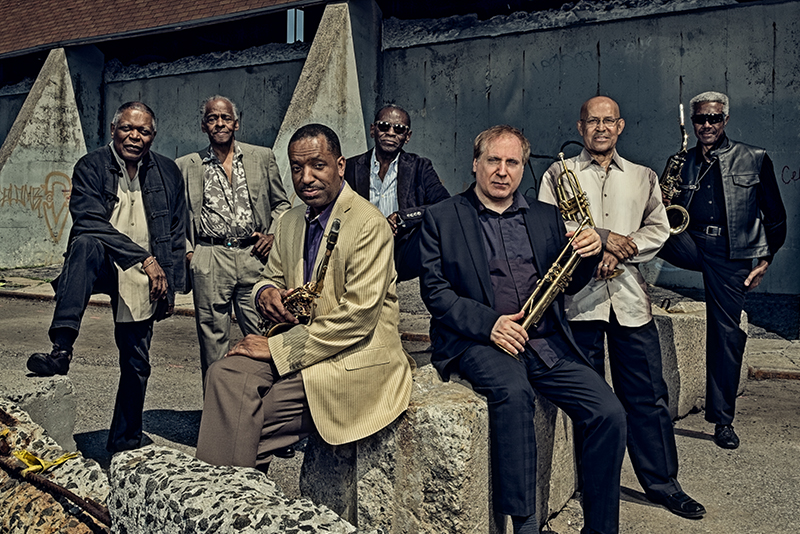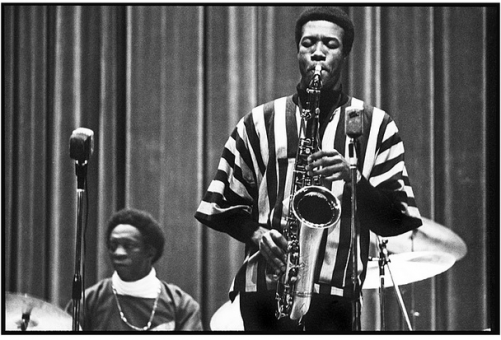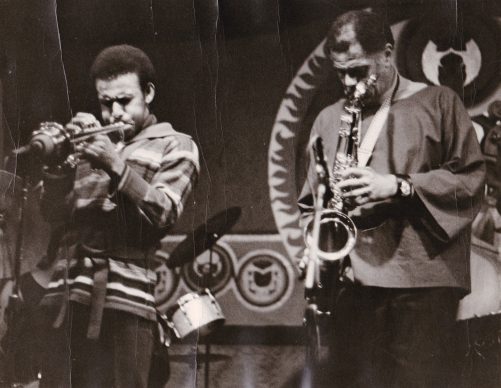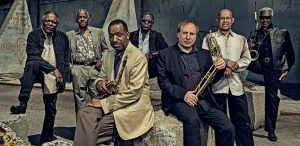
The Cookers: The remarkable history of a veritable jazz supergroup
One of the most fascinating aspects of jazz music is the way in which it’s history and development can be traced, through the creative leaders and willing collaborators that led or featured in it’s defining ensembles and contributed to it’s most cherished recordings. Modern jazz; an era which begins with bebop and it’s indomitable stars like Charlie Parker, Dizzy Gillespie and Thelonious Monk, flourished and developed at the hands of these players, as new technologies, socio-political factors and cultural shifts gave rise to new, modern jazz styles and reared a new generation of accomplished jazz players.
There are few jazz groups around today who could legitimately claim to have lived through, and on several occasions been a party to, the developments that occurred in jazz throughout the nineteen-sixties and seventies, but The Cookers are one of those groups. Consisting of players raised on early be-bop; the core of the band were playing professionally by the late fifties and early sixties, with each member accompanying a luminary artist during their earlier years, as they developed their own style and reputation in the jazz community.
Trumpet player David Weiss, who was responsible for bringing together the band which eventually morphed into the current Cookers line-up, tells us how he did it, as we explore the remarkable history of they players he has brought together.
“The group originally started as a one off gig” states Weiss, the fifty-one-year-old musician and founder of The New Jazz Composers Octet, responsible for organising the project; “…a Night of The Cookers celebration in Brooklyn, NY with many of the musicians on the original recording, especially James Spaulding and Pete “LaRoca” Sims.”
“Both these guys sounded great and the gig was a lot of fun so I pursued more gigs for the group. I was also working with Charles Tolliver at the time so the idea was to merge musicians from both projects and have Tolliver, Spaulding, LaRoca, George Cables and Billy Harper all be part of the group. After a few personnel changes, we did a gig in 2007 with the personnel as it basically is today and things just clicked and we just took off from there.”
The aforementioned saxophonist Billy Harper and pianist George Cables cut their teeth in Art Blakey’s Jazz Messangers during the late sixties. Harper, influenced by the defining work of John Coltrane, recorded one of the finest “black consciousness” LPs of the early seventies in Capra Black, released on Charles Tolliver’s renowned label Strata-East in 1973, while also playing with Gil Evans Orchestra and appearing on Max Roach and Randy Weston albums. Cables penned his own visionary classic in 1979, recruiting Freddie Hubbard and Bobby Hutcherson for his album Cables’ Vision. Cables had played with Sonny Rollins and Dexter Gordon, cementing him as a go-to pianist in the New York scene.

The connections in the group run deeper with the introduction of drummer Billy Hart and trumpeter Eddie Henderson. Henderson too played with Dexter Gordon among other artists and as Weiss explains, “Billy Hart and Eddie Henderson were in Herbie Hancock’s Mwandishi band together. Eddie Henderson played in Billy Harper’s group for years. They have all recorded with each other in various configurations throughout the years. It’s a really close knit group of guys and you can see that on stage and off.”
Hart played with Wes Montgomery in the mid sixties, moving to New York after the guitarist’s death. He became a prolific session player and sideman in addition to his work with Herbie Hancock, playing on classic records like Miles Davis’ On The Corner and Pharoah Sanders’ Black Unity in 1972.
Henderson’s 1973 LP for Capricorn records, entitled Realization, features Hancock and drummer Lenny White, and is considered to be one of the lesser known classics of the jazz-rock era. Henderson went on to record several albums for Blue Note recordings, with one of them being among Weiss’ personal favourites: “Eddie Henderson’s “Sunburst” was one of the first jazz records I ever owned and I loved it and played it to death. Billy Hart’s “Enchance” was also one of the first albums I ever owned. I saw it in a used record store in Brooklyn when I was a kid and it looked interesting (and was cheap) so I checked it out. I can still sing a lot of the tunes and solos on both records and will do so to the guys every once in a while. They’re good sports about it.”

Completing the band are Cecil McBee, Donald Harrison and Weiss himself.
McBee, like Harper, released his debut solo album on Strata-East, but of all the musicians had been active as a professional the longest, with work dating back as far as Dinah Washington’s band in the late fifties. He played on Alice Coltrane’s spiritual opus Journey in Satchidananda, Pharoah Sanders’ Black Unity along with Hart and Jackie McLean’s Action Action Action among other classic recordings, joining his now bandmates as one of New York’s most sought after players. Harrison was a later arrival to the scene, but still found time to play with Art Blakey, Don Pullen and Terence Blanchard, with whom he shares a strong New Orleans connection.
The remarkable individual histories of this band’s members, as well as the friendship they had made over the years of session playing and working band performance, made their coming together a thing of importance. Weiss echoes this idea of brotherhood, saying that “The members [of The Cookers] go back over 45 years and have done things together over the years. They have all recorded with each other in various configurations throughout the years. It’s a really close knit group of guys and you can see that on stage and off.”
Today, the band serves as a shining example in modern jazz, with a vast repertoire and a mastery of the music and it’s principals. As Weiss explains, “The impetus is always to be involved with great musicians and do interesting projects” and through this project, the band are realising this desire.
They recently released a new album, named after Harper’s composition The Call of the Wild and Peaceful Heart, their fifth since 2010, which Weiss describes as one of their most spiritual albums.
Discussing a typical Cookers live performance he adds, “Hopefully The Cookers embody everything that is great about this music. Great tunes played with passion and conviction at a certain intensity and everyone really means it. It should be exciting music and hopefully moving and touching as well. Jazz is great music of course and these guys were part of it in it’s heyday playing with the greatest musicians we have ever known. They still bring it with that same passion and intensity as only they know how to bring and seemingly have not lost a step. It’s a thing to behold really and sometimes I just want to sit back and be a fan as well and just take it all in but it’s even more fun and an extreme honor (and challenge) to share the stage with these great men.”
Tickets are on sale now.







